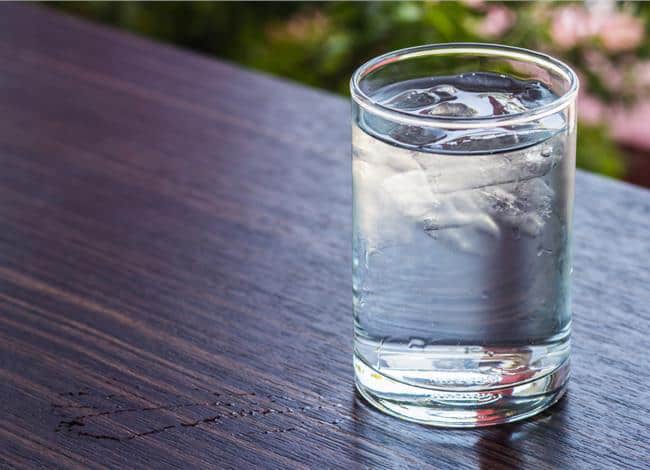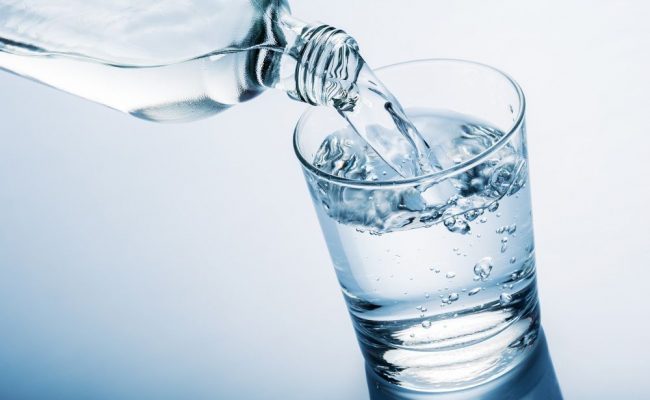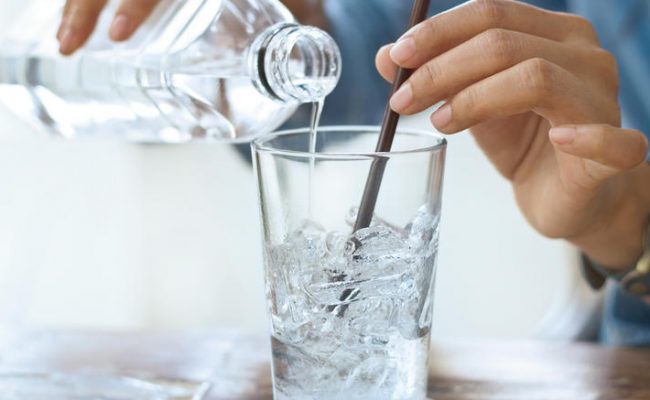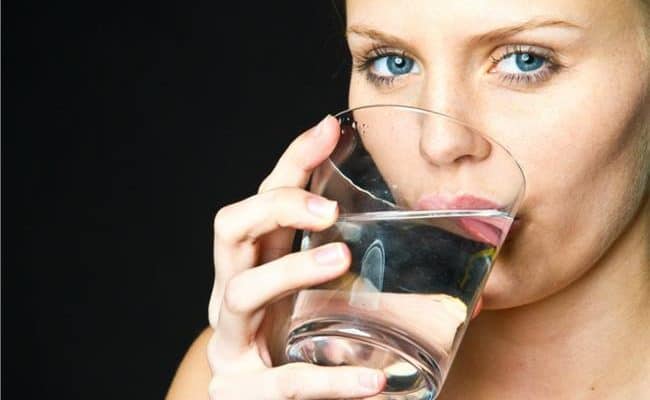
The health benefits of drinking enough water per day are many. For example, drinking adequate water ensures all your body fluids needed for digestion, absorption, circulation and excreting waste products are at healthy levels. Adequate water intake is also beneficial for muscle function, electrolyte balance and skin health.
An average human adult is about 60% water. Water is lost throughout the day and needs to be replenished daily. A common question is how much water is recommended per day? There are many different factors for determining how much water is adequate including sweat loss, exercise, environment, etc.
Here is a closer look at how you can determine how much water you should drink per day.
Why is it important to get enough water?
We have mechanisms in place in our body to preserve our body water content when intake is not adequate. However, when this happens you can experience headache, lethargy, lowered blood volume, inability to control body temperature and of course someone can die from no water intake.
When your water intake gets low, the thirst mechanism kicks in triggering a signal in the brain to try to increase fluid intake. The problem is that by the time someone feels thirsty, they are already slightly dehydrated. Drinking a cup or two of water may quench thirst, but it may not be adequate to bring your body back to a proper hydration level.
If you are busy all day, your thirst mechanism can get over ridden. Over time, people may grow desensitized to the thirst signal and get used to being slightly dehydrated. The elderly and the young are at an increased risk for dehydration because their thirst mechanism is not acute.
General recommendations for water intake
A common guideline for water consumption is 8 cups per day. However, this is just a general guideline and may not really be accurate.
The Institute of Medicine recommends for women adults to get about 2.7 liters (11 cups) of fluid per day and male adults 3.7 liters (16 cups) per day. This includes all fluid from beverages and fluid from food throughout the day. About 80% of body fluid needs come from drinking fluids and 20% comes from food we eat.
Another common guideline for water intake per day is to take your weight in pounds and divide by two. That number is how much water in ounces you should get per day.
How can you know how much fluid you are getting from foods?
It is nearly impossible to accurately measure how many cups of water you get from your diet. Fruits and vegetables have a very high water volume, so eating a diet rich in fruits and vegetables would provide more water than a diet that is made up of processed foods.
Reasons why you may need more water
These guidelines for fluid intake per day can be general starting points. However, there are many reasons you may need more than what the general guidelines suggest. The more you exercise and sweat, the higher the fluid needs. If you live in a hot climate, your fluid needs will be increased.
Also, some people may just naturally need more or less fluid due to individual variation. Younger people have a higher amount of water in the body, so their fluid intake needs are higher.
How do you know if you’re getting enough?
How do you know if you should drink 10, 11 or 12 cups of water per day? How do you know if you are dehydrated?
There is a simple way to assess your hydration status throughout the day. Though it is not glamorous, it is effective.
Your urine color can be an easy snapshot of your hydration status. In general, the darker your urine, the more dehydrated you are. If you are adequately hydrated, your urine will be very pale yellow to clear.
If you think you are not getting enough water through the day, find ways to make drinking more water easily through the day. It may seem challenging at first and that you are urinating frequently, but your body will soon adapt to your higher fluid intake.
You can get too much water, although it is rare. You would have to be drinking a really large amount of water. Sometimes during long endurance events people can get too much water if they are not replacing their electrolytes with fluid.
Conclusion
Adequate water intake every day is important for many health reasons. There are general guidelines for water intake like drinking, in ounces, your weight divided in half. The Institute of Medicine also has general guidelines for total fluid intake for men and women. However, everyone’s fluid needs are individualized by sweat loss, exercise, age, lean mass and environment.
An easy way to assess hydration status is to check your urine color throughout the day. If urine is dark, it probably means you are dehydrated.
References used in this article











Aaron says
There is one method of calculating how much water to drink, based on your weight.
Take your weight in lbs, divide that by two, and that is the number of ounces you should drink each day.
That way, a 120lbs woman and 160lbs woman wouldn’t be drinking the same amount.
And don’t forget to add another 10% or so for days with heavy cardio!!